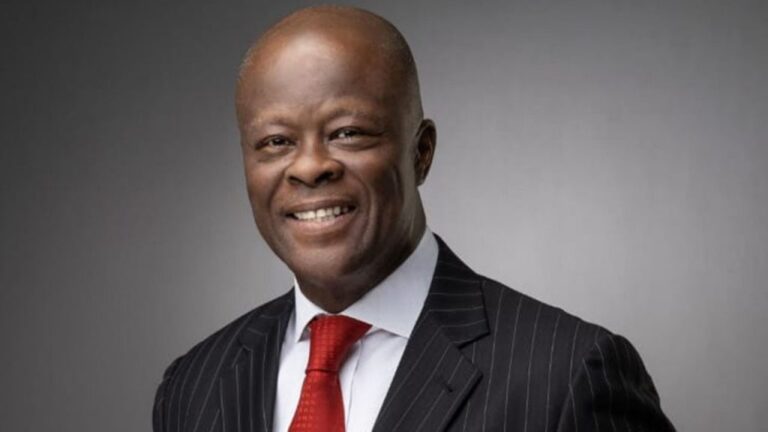
The application for a $3.45 billion loan to fund five projects was accepted by the Federal Executive Council on Monday.
They consist of initiatives pertaining to renewable energy, the power industry, the states’ resource mobilization program, the learning and empowerment initiative for teenage females, and the empowerment of women.
The FG will go ahead and accept the $3.5 billion “zero-interest” loan payable within 40 years with a 10-year moratorium, meaning payments would start from 2033, according to Wale Edun, Minister of Finance and Coordinating Minister of the Economy, who spoke with State House correspondents.
Edun clarified, saying, “I delivered five memos in the Federal Executive Council today, and the Council graciously approved them. They have to do with the World Bank’s and the International Development Association’s very concessional lending arm, which offers concessional and frequently zero-interest funding.
The electricity industry was the first to receive finance approval for projects, followed by the renewable energy sector. To assist governments in their efforts to create revenue internally, funding was provided for resource mobilization programs.
An initiative for learning and empowerment among teenage girls existed. Ultimately, the Women project received approval for the fifth funding that was granted.
The Minister of Finance continued, “The $700 million girls’ program will help young girls in secondary school age groups to develop employable skills in addition to their academic achievements.”
“$700m is the size of the current project,” Edun stated when putting a number on the undertaking.
Thus, the $5.45 billion in loans were made. As you are aware, the tenure is all about 40 years, with a 10-year moratorium and extremely low interest rates—or zero interest in the case of loans. There would be costs involved, though,” he continued.
The girls’ initiative, which started in seven states at first, has been expanded to eleven, according to Education Minister Tahir Mamman, who provided further explanation.
“Instead of the seven participating states at first, we will now have roughly 11 more states involved in this project, which will empower girls in the participating states ages 10 to 20.
“This is a very major escalation of this program that is meant to empower our teachers, our girls, and the country’s ability to build more schools,” Mamman stated.
He continued by saying that the programs are in keeping with the Tinubu administration’s goal of lowering, “if not eliminating altogether,” the overall number of girls and kids who are not in school.
The Federal Executive Council also gave its approval to the establishment of the Humanitarian and Poverty Alleviation Fund, which aims to raise $5 billion a year for humanitarian emergencies.
Betta Edu, the Minister of Humanitarian Affairs and Poverty Alleviation, revealed this information, stating that funds would be raised from several sources, including the government, private sector, development partners, and people.
According to Edu, the fund—a type of adaptable funding—will enable quick reactions to national humanitarian emergencies.
“One adaptable source of funding that can assist us in obtaining contributions from various industries is the Humanitarian and Poverty Alleviation Trusts Fund. We therefore anticipate donations from the public and business sectors, as well as from individuals, philanthropic individuals, development partners, and other creative crowdsourcing and fund-pooling methods. This will make it possible to respond to the Nigerian humanitarian issue in an emergency.
We are informed about the crises, the floods, and other related events every other day. As a nation, we must be able to react effectively. In addition, President Bola Ahmed Tinubu included the problem of poverty alleviation in his eight-point program, and we want to be ready to take it on head-on.
How much of it do we see? Through the numerous sources I’ve described and even more, we intend to raise at least $5 billion through this fund each year. We aim to meet with all the important parties, including other ministries, and genuinely work out the complete implementation strategy in Nigeria with the establishment of this money,” the minister stated.
A draft policy covering the operations, guidelines, regulatory framework, sourcing, and all the dynamics of the Nigerian solid mineral sector was adopted by the Federal Government in the meantime.
In addition to stating that the FG is prepared to invest in technology to secure Nigerian mining space, Minister of Solid Minerals Development, Mr. Dele Alake, explained this to the press.
Alake said that illegal foreign miners were a significant national source of illegal mining activity and that technology now allowed the government to figure out their tactics.
“A significant amount of technology is being injected. The problems of a porous border are evident; in rural regions, illegal mining is a common occurrence. The government has also linked illegal miners’ labor, particularly that of foreign miners who supported banditry in the surrounding areas, to incidences of banditry.
Technology is assisting us in interpreting these, with the idea of pushing away the local populace and entering to investigate.
“We collaborate with the Inspector General of Police, who serves as the National Security Advisor,” he declared.